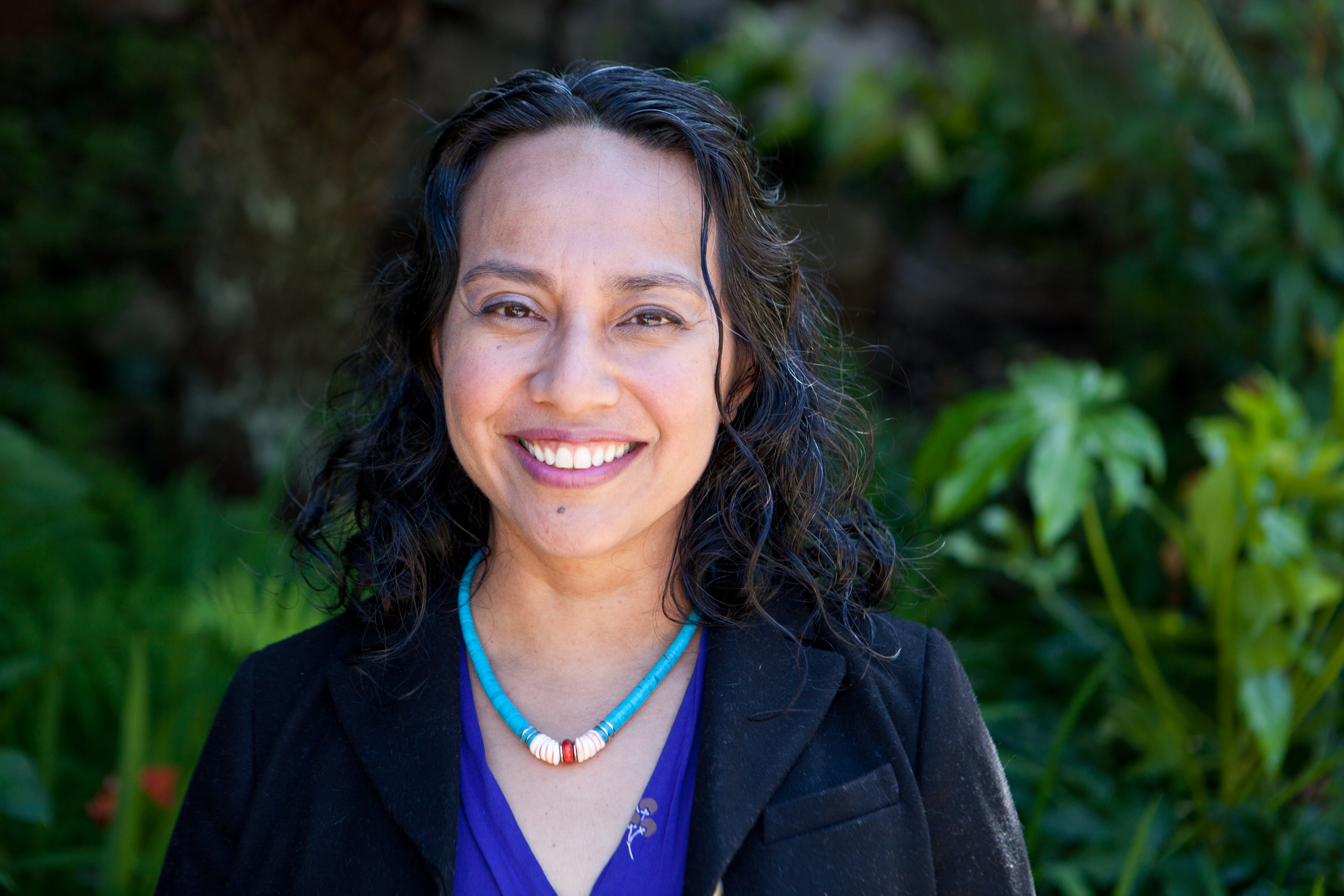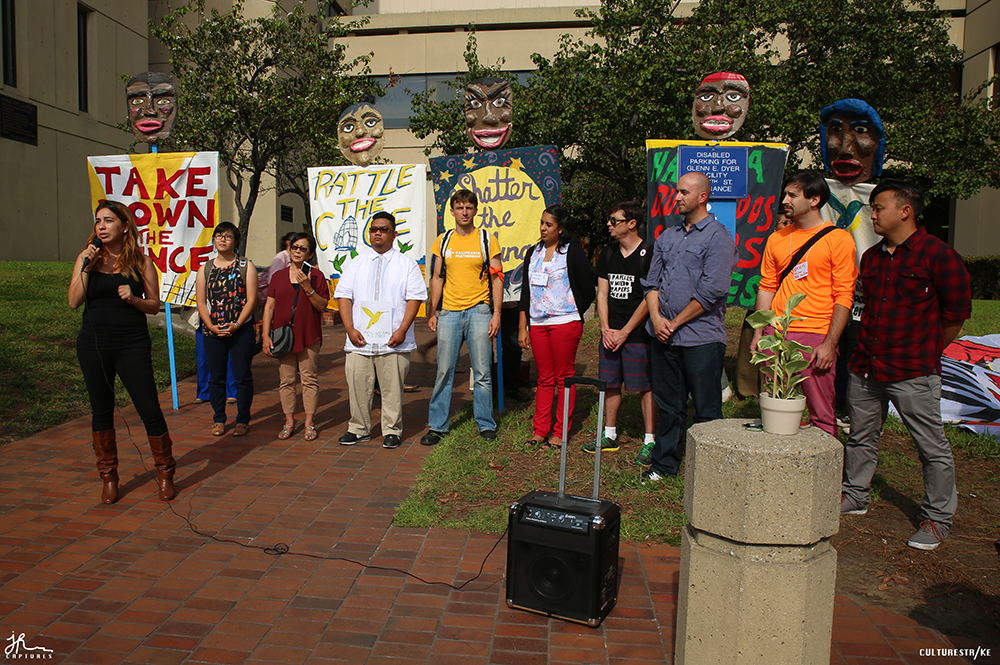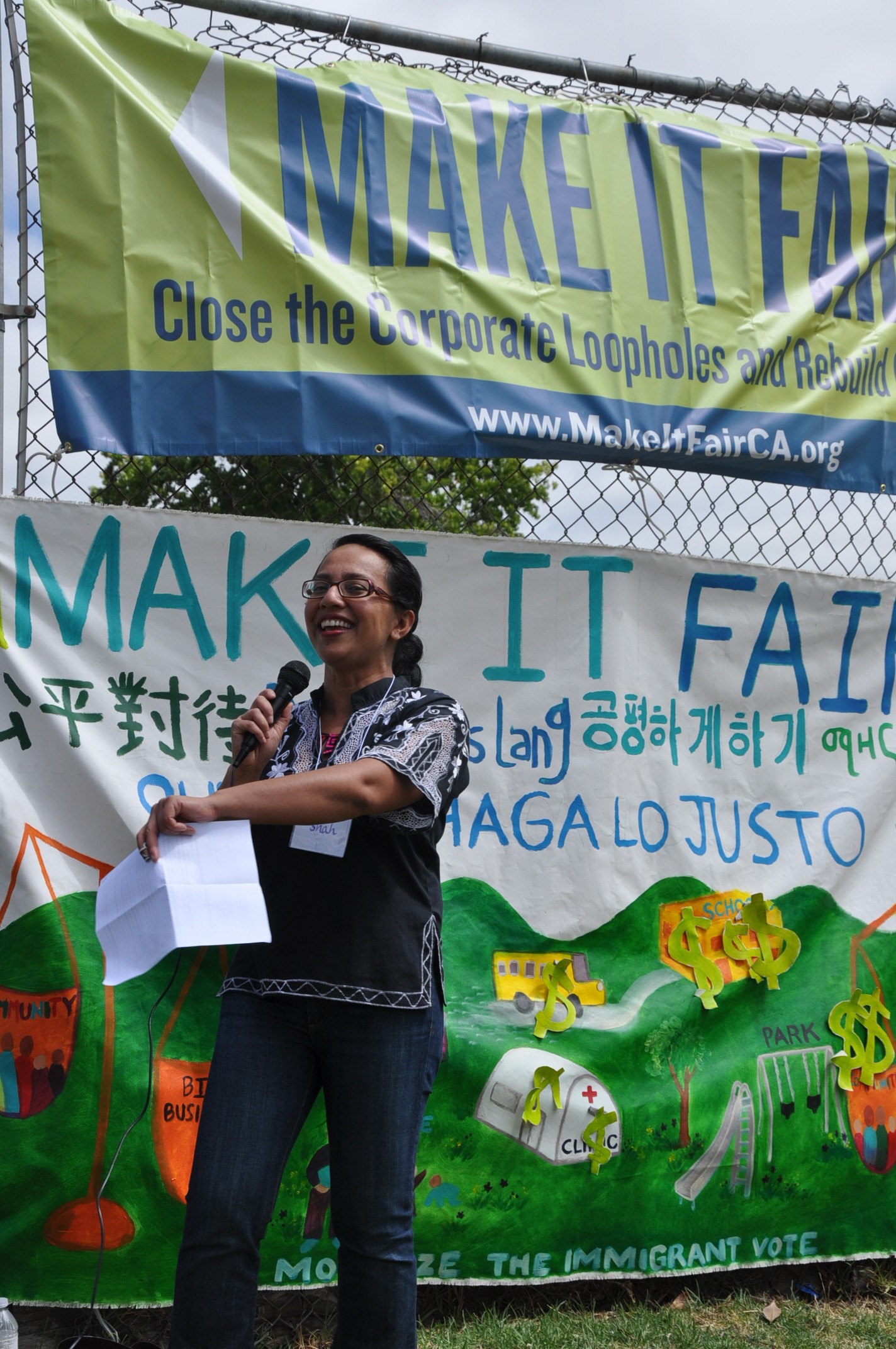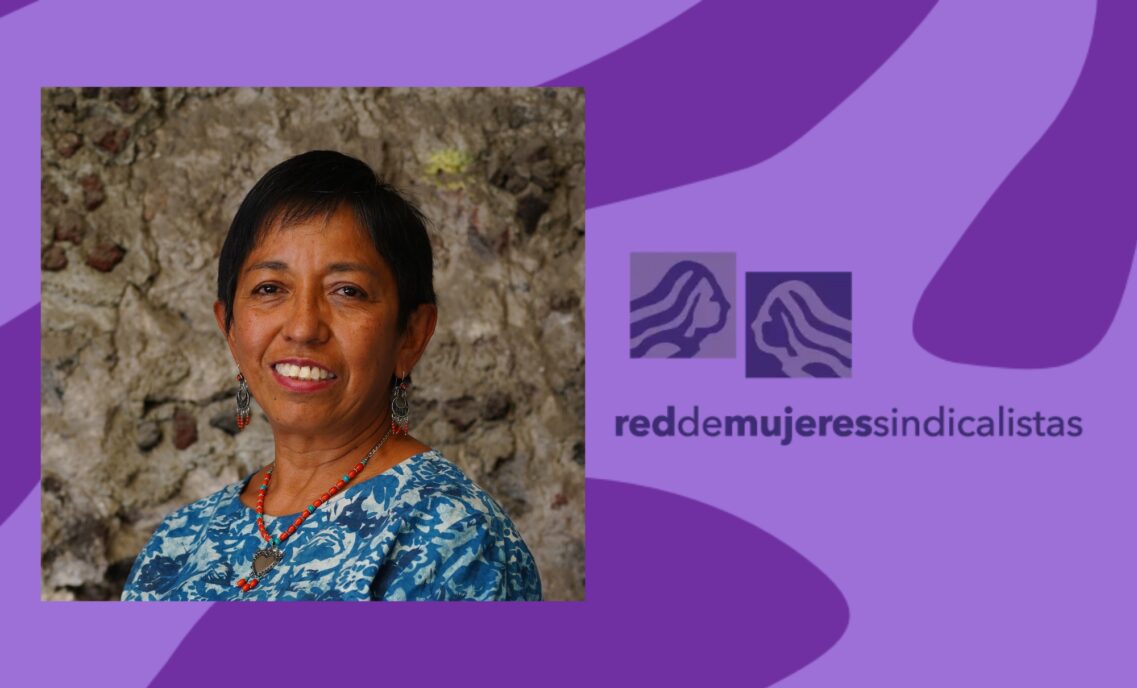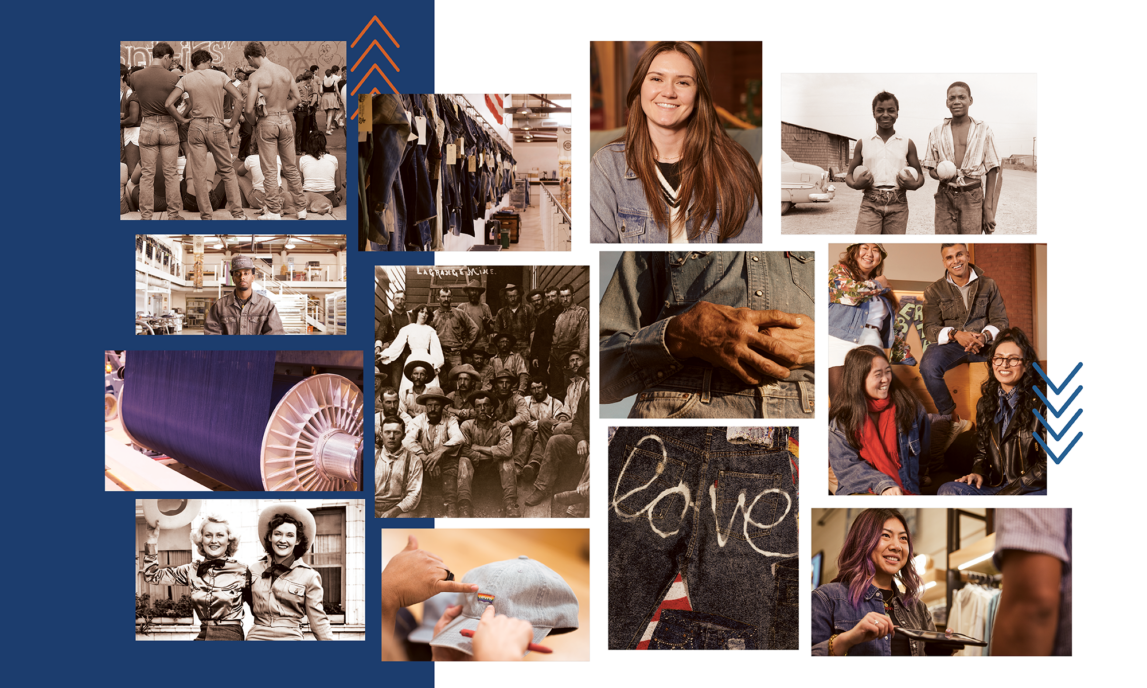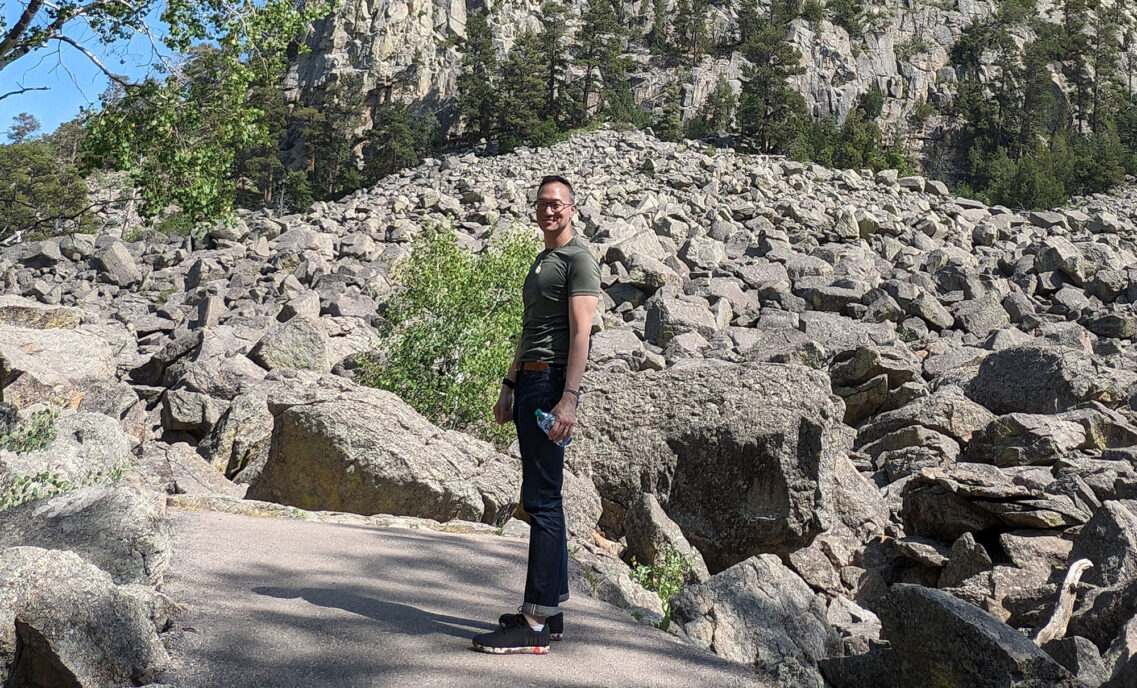California is in the midst of a demographic evolution rooted in the emerging majority of immigrant, refugee and racial minority populations. And those greater numbers represent the potential for greater power, especially for impactful political action.
So when you flip the script on the status of the minority in this context, it isn’t just the idea of getting out the vote, but about the ability to swing it altogether.
But that’s only if they show up at the polls.
Enter Mobilize the Immigrant Vote, an organization founded to address inequities in voter representation and turnout. The multiracial alliance is pushing hard to reach and rally new and infrequent voters in California this fall – including registering 11,000 new voters from immigrant and refugee communities of color via outreach in 12 different languages. There’s also the YVote campaign, co-designed and co-led with Movement Strategy Center, aimed at connecting with 50,000 millennial minority voters to get 30,000 of them to the polls.
The ultimate objective is to push the voter pool – which currently skews older, whiter and wealthier than the pool of eligible voters – to more closely resemble California’s actual demographics. “Majority-minority” states like California are at the forefront of a nation-wide demographic shift that is expected to see the country’s minority populations become the majority by 2044.
This is a mission Aparna Shah, executive director at Mobilize the Immigrant Vote, takes very personally. She doesn’t just lead the organization – she exemplifies its values. Of Filipino and Indian heritage, Aparna immigrated to the U.S. with her family when she was 6 years old, so she brings her unique insight into reaching immigrant communities with messages of empowerment.
“It’s about really believing that we belong here,” she says. “That we have a place here in this state, in this country, and that our families have the right to be here, to thrive, live in dignity and make our own decisions.”
It’s a poignant observation in the face of a particularly tumultuous election year where immigration has become a contentious and prominent issue. But it also serves as a reminder of just how pivotal a role a voting minority can hold. And there’s no better reflection of that influence than the results of the 2012 presidential election when the minority vote unequivocally affected the overall outcome.
Under Aparna’s leadership, MIV has driven nine statewide campaigns in California, engaging more than 50 community-based organizations across the state and reaching over four million “New American” voters through voter education, media advocacy and “get out the vote” drives.
The Levi Strauss Foundation is honoring the work of MIV and Aparna with a spot in the Pioneers 2020 initiative as part of the second class of the Pioneers in Justice program that supports next-generation social justice leaders as they innovate through the power of networks and technology to mobilize their voices across sectors.
“We’re the smallest organization in the Pioneers 2020 cohort,” Aparna says. “We often say we’re small but mighty … This recognition is encouragement that the work we’re doing across racial and ethnic lines among immigrant and refugee communities is significant and needed.”
MIV advocates for an approach that sees electoral organizing as part of a larger movement for social and economic justice. This approach focuses not only on short-term increases in voter turnout and ballot initiative wins, but also on long-term leadership development within low-income immigrant and refugee communities and building multi-racial political power.
Beyond the Ballot
To fuel its important efforts around civic engagement, the organization doesn’t just focus on voter turnout, political arguments and ballot box wins. It also harnesses the power of art, dialogue and other artistic expression to galvanize the diverse communities it represents around shared values and experiences.
One example of this unique approach is the “Until We Are All Free” initiative, co-created with CultureStrike in partnership with the Black Alliance for Just Immigration that seeks to challenge racism, mass incarceration and mass deportation.
The initiative “imagines a world without borders and bars,” Aparna says. “Using art and culture, we imagine what our world would actually look like, and the policies and infrastructure that would make it possible.”
The cornerstone of that project is the recently unveiled Declaration of Unity, a lyrical appeal by acclaimed author NoViolet Bulawayo calling for a fundamental shift in the way that migrants are welcomed by individuals, communities and countries. It is paired with an activity guide of art and dialogue sessions that encourages “introspection, imagination and visionary solutions” to ending racism.
“It is not a policy platform, the kind of thing that social justice activists are very familiar with and serves an important place in the movement,” Aparna says. “But those platforms don’t necessarily fully capture the full imagination and creativity of what is possible, not just politically viable.”
While that world of possibility may only exist in our imaginations for now, she says, painting a picture of the way we want it to look is the first step toward making it a reality. And channeling that art-driven inspiration into action – like casting votes in November and in future elections – is key to forging that new future.
*Main photo courtesy of Jesús Iñiguez/CultureStrike.
Like this story?
Sign up for the Unzipped newsletter to get the best of the Unzipped blog — company news and views, employee profiles, innovation and sustainability stories, behind-the-scenes and Archives highlights — sent straight to your inbox weekly.




